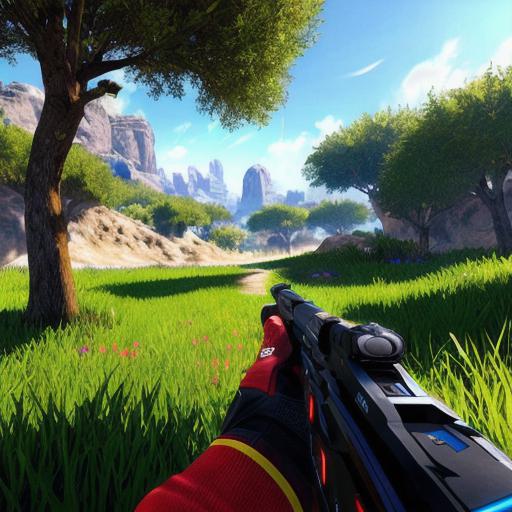Introduction:

The gaming industry has undergone significant changes in recent years, with blockchain technology playing a crucial role in this evolution. By leveraging the power of blockchain, game developers can create immersive and engaging games that offer players unique and exciting experiences. In this article, we will explore the rise of blockchain-based games, their benefits, and how they are changing the gaming landscape.
The Rise of Blockchain-Based Games:
Blockchain technology has provided game developers with a platform to create more secure, transparent, and decentralized games. With blockchain-based games, players can trust that their in-game assets are safe, as they are stored on a distributed ledger. This ensures that there is no central point of failure and that all transactions are recorded on the blockchain, making it easy to trace.
One example of a successful blockchain-based game is CryptoKitties. It’s a decentralized game where players can buy, sell, and breed digital cats using cryptocurrency. The game has become so popular that it has caused traffic congestion on the Ethereum network, highlighting the potential for blockchain-based games to disrupt traditional gaming models.
Benefits of Blockchain-Based Games:
Blockchain-based games offer several benefits to players and developers alike. Firstly, they provide a level of security that is unmatched by traditional gaming platforms. With blockchain technology, players can trust that their in-game assets are safe, as they are stored on a distributed ledger. This ensures that there is no central point of failure and that all transactions are recorded on the blockchain, making it easy to trace.
Secondly, blockchain-based games offer players a level of transparency that is unmatched by traditional gaming platforms. With blockchain technology, players can see exactly how their in-game assets are being used and where they are stored. This provides players with greater control over their gameplay, as they can choose to invest in games that align with their values.
Thirdly, blockchain-based games offer developers a new revenue stream. With blockchain technology, developers can create unique in-game assets that can be bought and sold by players. This allows developers to monetize their games in a more sustainable way, as players are willing to pay for exclusive and valuable in-game items.
The Future of Gaming:
The rise of blockchain-based games is just the beginning of a new era in gaming. As technology continues to evolve, we can expect to see more innovative and immersive games that leverage the power of blockchain. This will create new opportunities for developers, players, and investors, as they explore the potential of this exciting technology.
FAQs:
-
What is the main difference between traditional games and blockchain-based games? Traditional games are centralized, while blockchain-based games are decentralized, providing a level of security and transparency that is unmatched by traditional gaming platforms.
-
Can players buy and sell in-game assets using cryptocurrency? Yes, many blockchain-based games allow players to buy and sell in-game assets using cryptocurrency, creating a new revenue stream for developers.
-
What are some examples of successful blockchain-based games? CryptoKitties is one example of a successful blockchain-based game that has disrupted traditional gaming models. Other examples include Decentraland and SuperRare.
-
How do blockchain-based games differ from other types of online games? Blockchain-based games offer players a level of security, transparency, and ownership that is unmatched by other types of online games. Players can trust that their in-game assets are safe, as they are stored on a distributed ledger.
-
What is the potential for blockchain-based games in the future? The potential for blockchain-based games is vast, as technology continues to evolve. We can expect to see more innovative and immersive games that leverage the power of blockchain, creating new opportunities for developers, players, and investors.
